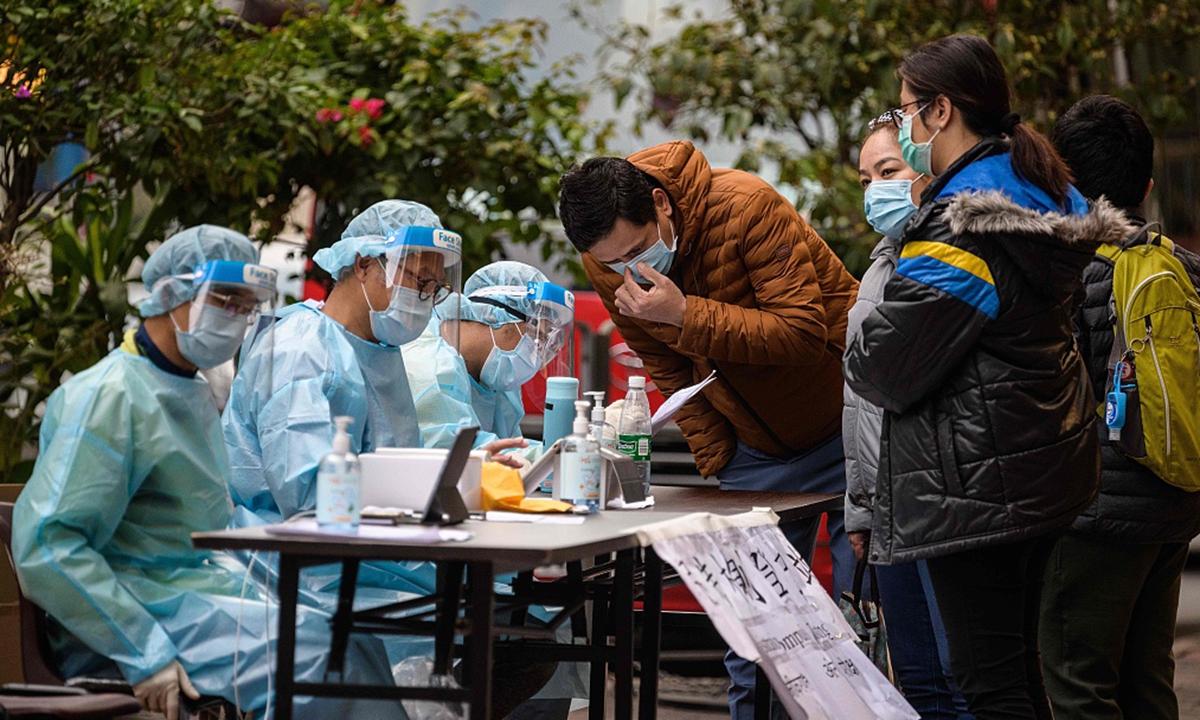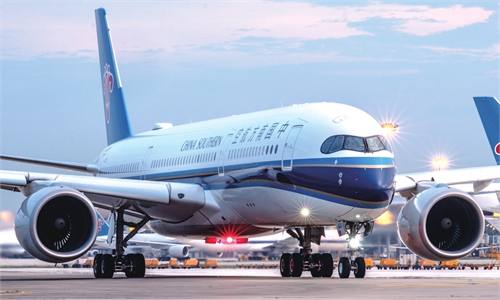HK cuts arrivals' hotel quarantine to 3 days, 'an exploration based on mainland's dynamic zero-COVID policy'

Photo:VCG
People arriving in the Hong Kong Special Administrative Region (HKSAR) from overseas will be required to be quarantined in designated hotels for three days instead of seven, starting from Friday, HKSAR Chief Executive John Lee announced at a news conference on Monday.
The policy change is based on scientific research and experience in epidemic prevention, public health scientist in Hong Kong said, noting it is a positive exploration based on the Chinese mainland's dynamic zero-COVID policy.
Specifying the policy change, Lee said that after spending three days at a quarantine hotel, new arrivals to the city can go home or elsewhere, but will undergo medical observation for four more days, during which time they can use public transportation but entrance to certain public venues will be banned.
Gaining experience from the Chinese mainland's health code system, Hong Kong will give "amber codes" to those who have just left hotel quarantine and are under medical observation. The codes will stop them from entering certain public venues considered to be high-risk, including bars, gyms, restaurants and care homes. Yet, they will be allowed to go to school or work, or to take public transportation.
Lo Chung-mau, Hong Kong's secretary of health, provided a scientific explanation for shortening the quarantine, saying that most COVID-19 cases among arrivals are found in the first three days. It would not be cost-effective and would affect Hong Kong's international connectivity to isolate arrivals for an additional four days, he said at the news conference.
It is arguably the best time for Hong Kong to make this policy adjustment, which can be described as very prudent and precise prevention and control, balancing all aspects of the requirements of anti-epidemic controls and costs, Jin Dongyan, a biomedical professor at the University of Hong Kong, told the Global Times.
With the experience so far, the implementation of this policy does not increase the risk of infection in the community, Jin said.
Jin pointed out that policy formulation and adjustment in Hong Kong has absorbed the experience of the mainland and taken into account the aspirations of Hong Kong residents.
"For example, on the basis of the mainland's health code system, a similar system implemented in Hong Kong provides greater protection for privacy, which has the support of Hong Kong people," he said.
Lee said that the government is striking a balance between controlling infection risks, and allowing more economic activities and maintaining Hong Kong's competitiveness, according to Hong Kong media outlet RTHK.
"The main purpose is that while we can control the threat to public health, we want also to ensure that society can have the maximum degree of economic and social activities so that society can go about as normally as possible, and the competitiveness of Hong Kong can be maintained," he said.
Jin pointed out that Hong Kong's policy adjustment is under the general framework of the Chinese mainland's dynamic zero-COVID policy with new explorations.
Hong Kong has scientific research and experience as a foundation to explore the upgraded version of the policy, Jin said, noting that the unique soil for such explorations is especially thanks to the "one country, two systems," he said.
Addressing concerns that a shortened quarantine in Hong Kong may affect the HKSAR's potential quarantine-free travel with the mainland, Lee said that there is no contradiction between quarantine-free travel with the mainland and re-opening to world.
The chief executive said that he would actively communicate the situation in Hong Kong with the mainland authorities, but he did not intend to make the details public until a consensus is reached.
In July, the Civil Aviation Administration of China said that China will enhance communication with countries to increase international flights during the second half of this year, considering the demand for international personnel exchanges such as overseas students returning to China. A number of airlines have already announced resumption of international flight services.

